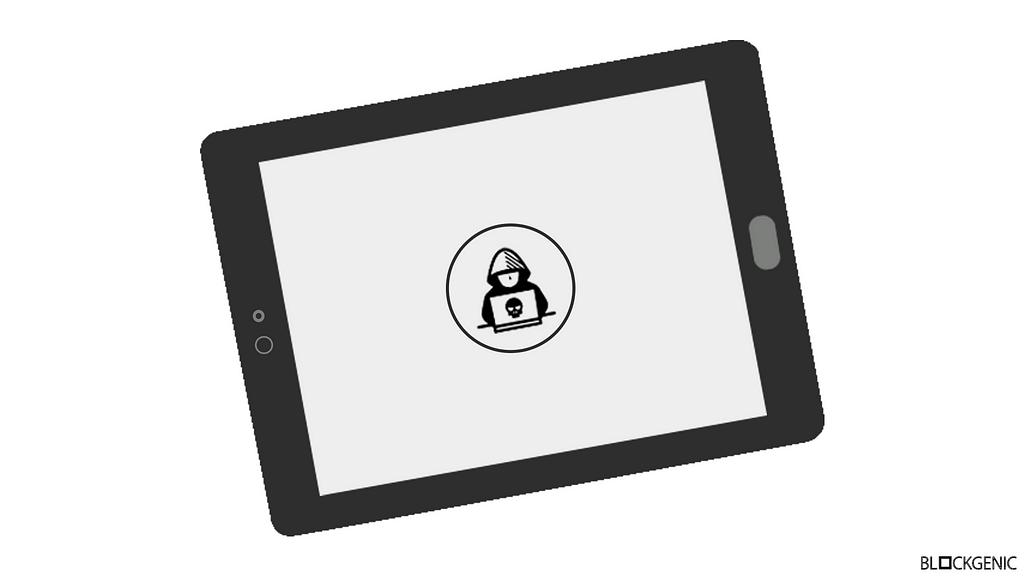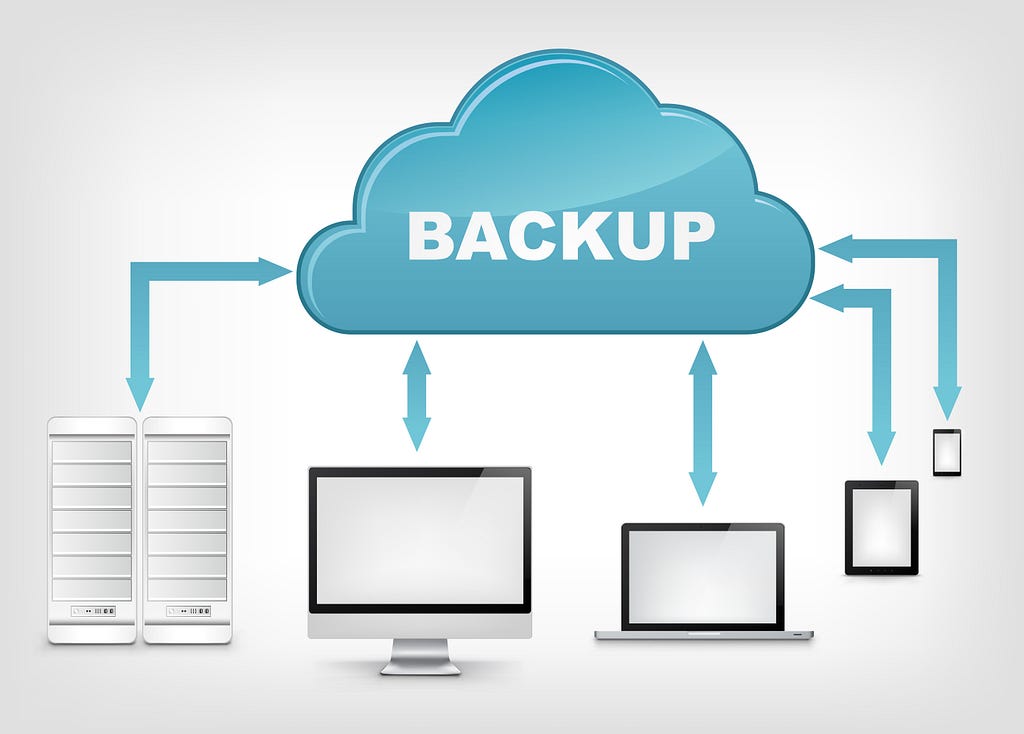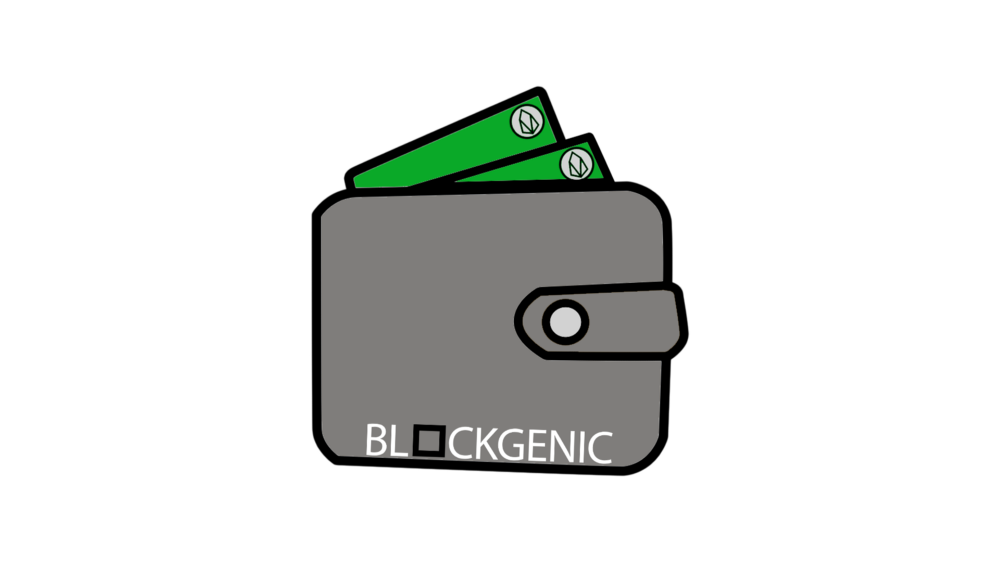Latest news about Bitcoin and all cryptocurrencies. Your daily crypto news habit.

In the first half of 2018 alone, $1.1B in cryptocurrency has been stolen. That means $4,243.83 in cryptocurrency was stolen every second in the first half of 2018. Could most of these thefts have been prevented with basic security measures in place?
Basic security measures
Online scams and hacks are as old the internet itself, but it seems like these malefactions and their practitioners have evolved very fast, whereas the average blockchain user often lacks basic understanding of online security. Various reports show that online fraud is on the rise and the arrival (and popularity) of cryptocurrencies has helped hackers and scammers immensely. So, what should you do to remain safe online?
1 | Keep your device secure and safe
You can have the longest and most complex passwords in the world, if your device is compromised, hackers will still be able to get access to your your data and cryptocurrencies.
Viruses do not magically appear on devices. Users themselves are usually the ones responsible for getting viruses. It can often be prevented with safe browsing (no shady websites, no unverifiable downloads) and proper antivirus. You should also regularly check the device you use to access or hold your cryptocurrencies for viruses.
Another thing worth mentioning is that you should never enter any private key or password on a device that you are not 100% is safe. Every time you do so you put your data and cryptocurrencies at risk.
2 | If you do not understand the basics of the technology, do not invest in it
With the recent surge in popularity of cryptocurrencies, many people have decided to invest in cryptocurrencies. Most of them completely unfamiliar with the actual technology, just looking to make a quick profit. This has led to many hackers and scammers preying on these ill-informed investors, as most of them don’t even have an inkling of what they are doing.
One of the great benefits and also one of the pitfalls of cryptocurrencies is their decentralization. You are responsible for your cryptocurrencies. There are no middlemen, no central authorities, that can either get in your way when you are trying do certain things, or help you when you need them. Nobody can help you if your cryptocurrency gets stolen. There is no way to undo a transaction. And there is no way to recover a private key if you lose it.
If you do not understand the technology well enough to take responsibility of an investment, do not make the investment.
3 | Make backups regularly Backing your data up online is just one of the possibilities (source)
Backing your data up online is just one of the possibilities (source)
Backups can be lifesavers, whether you’re the victim of failing hard drives or a ransomware attack, backups can make things right again. After all, hardware can get replaced, but data can not.
There are various ways to store your backups/data. You can choose to store your backups on external hard drives, USB drives, or your might prefer a more conventional online backup.
No matter how you decide to store your backup, just remember to make them regularly and make sure they are secure (more on this later). You should also not rely on a single backup, as backups are susceptible to failure too. There’s nothing more painful than having a backup fail when you need it most.
4 | Store your data safely
Your data is often very sensitive, so why store it in an unsafe way? If somebody is able to get their hands on an unencrypted backup it is just as bad as them getting direct access to all data on your device. So, how should you store your data in a safely?
The answer is encryption. Encrypting your data ensures only you, with the encryption key of course, are able to access the data you encrypted. A good rule of thumb is to encrypt the data if it is sensitive in any way. Making a backup? Encrypt it. Storing passwords? Encrypt the file.
Another thing worth noting is that you should be certain that your encryption is not easy to crack, a simple encryption key is not going to stop someone with malicious intentions from breaking your encryption. There is plenty of (good) software out there to help you with encrypting your files.
5 | Never disclose any ownings or profits
Cryptocurrencies have proven to be very volatile and have risen quite a lot in value over the past years. Because of this, criminal activity surrounding cryptocurrencies has also increased a lot.
Disclosing any of your ownings or profits can put a target on your back. Even if your ownings might not be worth much today, they could be worth much much more in the future. Therefore you are taking an unnecessary risk every time you disclose your ownings or profits to someone. Even typing them somewhere can be risky.
Treat your ownings and profits with caution. You never have to disclose them.
6 | If it sounds too good to be true, it is
Cryptocurrency related scams unfortunately are unfortunately very common nowadays, They come in many ways and forms, varying from simple fake ‘giveaways’ to sophisticated fake ICO websites.
 One of many crypto scams on Twitter
One of many crypto scams on Twitter
What is even more painful to see is the sheer amount of people falling for these scams. Most of these scams can easily be avoided by doing a couple of things:-Always double-check every URL you visit.-Never send any crypto or give out any personal information (to participate in a giveaway).-Avoid any personal messages about crypto promotions.-Always remember that nobody is giving out free money. If it sounds too good to be true, it almost always is.
As long as you keep the above things in mind, you will be safe from most crypto scams. Scams are continuously evolving though, so always be wary.
7 | Use two-factor authentication wherever possible
Two-factor authentication is one of your biggest friends when it comes to online security. Two-factor authentication, as its name suggests, is a way of adding a second factor needed to access an account or wallet. This is often done by using an authenticator application (on a smartphone) that generates a unique code every thirty seconds. To access the account or wallet both the password and the unique code (active at that moment) are needed. So, if somebody manages to get a hold of your password, they would still need access to your authenticator application in order to get in to your account.
Almost all cryptocurrency exchanges support two-factor authentication nowadays. So, don’t be lazy and take the time to setup two-factor authentication.
8 | Antivirus is your best friend
This partially falls under “Keep your device secure and safe” but it is deserving of a specific mention, as it is often forgotten. Free antivirus is unfortunately not as safe as you might think, as it misses some key features that only premium antivirus has. Therefore you should consider investing some money in premium antivirus software.
The cost of these premium antivirus programs is meager compared to the consequences of a possible attack on your device. Free antivirus often has no, or poor, real-time protection against threats. By the time you decide to do another scan of your device it could already be too late. To add on to that, viruses are constantly evolving, but your free antivirus is not. Continuous updates to your antivirus cost money.
9 | Choose your wallet wisely
Lastly, we have “Choose your wallet wisely”. This is one of the most important choices you will have to make when you are holding cryptocurrency. Do you go for the flashy and convenient mobile wallet, or do you go for the arduous yet secure core wallet? All of these wallets have certain advantages over each other, so which one should you pick? We have explained the most important kinds of wallets and their most important features below, to help you make this choice.
Different kinds of cryptocurrency wallets
As said above, choosing your wallet is a very important step. What kind of wallet you need depends on what you plan on doing with your cryptocurrencies. There are 3 different kinds of cryptocurrency wallets, all with different features and drawbacks.
The first kind of cryptocurrency wallet is a wallet on an exchange. These wallets are usually very easy to use but offer no significant advantages other than having the ability to instantly trade your cryptocurrencies. Not only do these wallets have very limited options, but they are also rather unreliable. If anything happens to the exchange (they get hacked, they disappear, your account gets compromised) you can lose your cryptocurrencies. Only use these wallets if you are planning on trading (very) often, not when you plan on holding long-term.
The second kind of cryptocurrency wallet is a wallet you control yourself. This means that you are the (only) one who holds the private key that is needed to access the wallet. If you store this private key safely there is no way for somebody to access your wallet. If you hold the private key you can also decide to use one of many available programs or websites to make the whole thing more convenient. Keep in mind though that using one of these programs or websites brings additional risks. If done correctly, these wallets are perfect for regular usage of your cryptocurrency.
The third and last kind of cryptocurrency wallet is a hardware wallet. A hardware wallet is a device which ‘holds’ your cryptocurrency. The hardware wallet ensures your private key is never exposed and even requires you to physically enter an additional pin code (which you can set yourself) on the hardware wallet every time you want to make a transaction. While these devices might not be very convenient to use, they are without a doubt the safest way to store your cryptocurrency for longer periods of time. When purchasing a hardware wallet always make sure you are buying from the official website.
Conclusion
Basic security measures are often overlooked or ignored, which has lead to many thefts, most of which could have been prevented rather easily. By following the above measures you should be be able to hold, use, and trade cryptocurrencies safely. Although you are always at risk of getting hacked, following the above measures drastically decrease the odds of getting hacked.
About us
We are Blockgenic, a network of world class technology entrepreneurs and investors looking to make a positive impact on blockchain technology. You can find us here:EOS Block Producer name: ‘blockgenicbp’WebsiteTwitterYoutube Reddit
Keeping Your Cryptocurrencies Safe was originally published in Hacker Noon on Medium, where people are continuing the conversation by highlighting and responding to this story.
Disclaimer
The views and opinions expressed in this article are solely those of the authors and do not reflect the views of Bitcoin Insider. Every investment and trading move involves risk - this is especially true for cryptocurrencies given their volatility. We strongly advise our readers to conduct their own research when making a decision.
